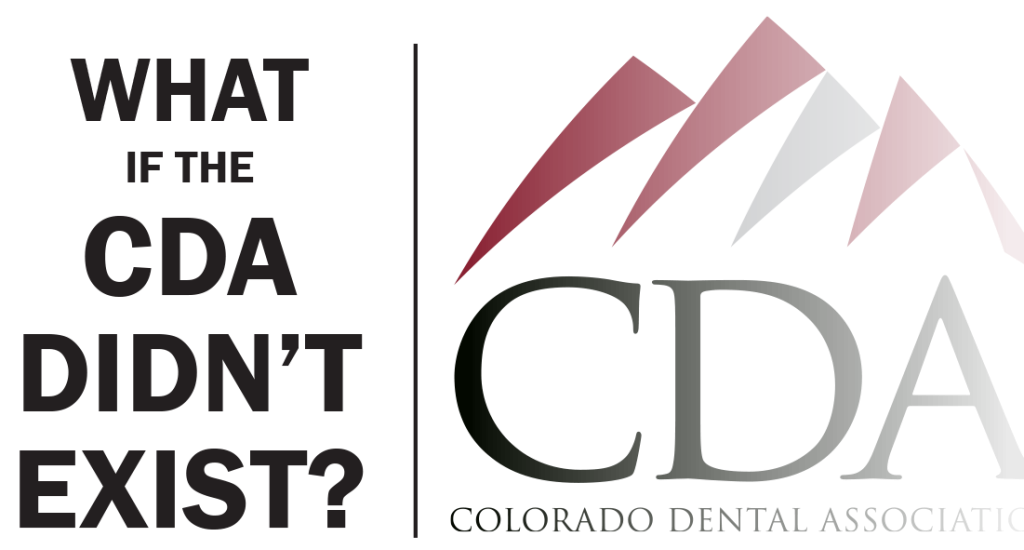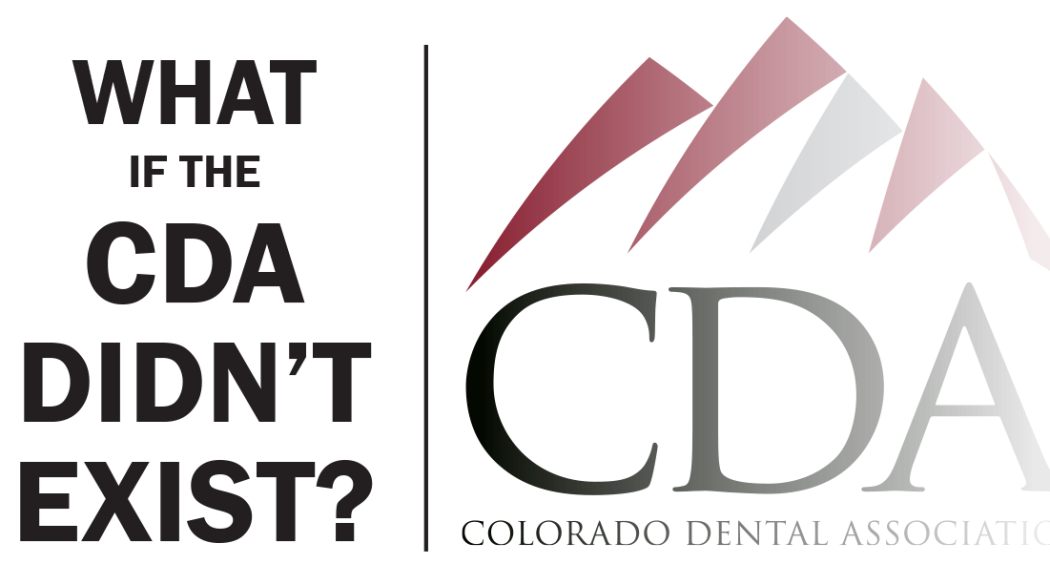 By Molly Pereira, CDA Executive Director
By Molly Pereira, CDA Executive Director
I frequently see social media posts questioning the relevance of organized dentistry today.
- “Joining an association? Isn’t that something my grandpa did. It feels outdated.”
- “With the internet and social media, I can find anything I need and connect with anyone I want. Why pay for something that’s already available?”
- “I keep reading that organized dentistry advocates for the profession, but I still benefit even if I’m not a member, right?”
Yes…but…
- Associations were formed as a way for people to join a community and thrive as a larger body. This is still true – associations are about organizing for a greater cause, for greater change. We’ve all seen examples this year showing the power of people united. Your grandpa was on to something.
- The internet and social channels have more information than we need – but so much of the information is inaccurate. It’s easy to get trapped in an echo chamber or confused by conflicting sources. The CDA curates reliable, factual and relevant content. It creates information tailored to your practice, your patients and your future.
- The CDA advocates for dentists – both members and non-members – it is the leading voice for dentists in Colorado. If the majority of dentists aren’t engaged, however, policymakers will only hear those advocating from other trades, regulatory agencies, healthcare giants and well-funded interest groups. These groups don’t always have dentistry’s best interests in mind.

This year the CDA fought for you in the legislature’s full review of the Dental Practice Act – the laws that govern dentistry in Colorado. To prepare for this very important legislation (that only happens once every 10 years) we met with dentists over the last two plus years to better understand the changes dentists wanted and the safeguards that needed to be protected. Our 36-page report to the Department of Regulatory Agencies (DORA) contained 27 substantive changes to improve the quality of care in Colorado. Unfortunately, DORA accepted just four of our recommended changes and created a bill draft that contained THEIR recommendations for how dentistry should be regulated for the next 10 years. In February of this year, the CDA challenged DORA in the Senate and was successful in proposing an entirely new bill draft – the Senate Health and Human Services Committee unanimously accepted CDA’s version of the bill draft, which successfully passed and was signed by the governor in May.
But what if the CDA didn’t exist? What if DORA’s bill draft was used instead?
If the CDA didn’t exist to advocate on behalf of Colorado dentists, the DORA version of the Dental Practice Act would include changes that could impact the standard of care:
- Foreign-trained dentists from any country would be allowed to practice in Colorado without CODA-accredited training. It would be left up to the Colorado Dental Board to review each foreign dental education program to decide if they think it meets Colorado standards.
- Dental therapists would be singled out and prioritized above other dental professionals to practice in dental shortage areas of the state, which includes rural and frontier areas, as well as Federally Qualified Health Centers and rural health clinics.
- Dental therapists would not be required to take a clinical exam demonstrating their competency in dental hygiene but would still be allowed to practice in the hygiene scope.
- Dental hygienists performing interim therapeutic restorations (ITR) would not be required to have a referral in place for follow-up care that is within a reasonable distance from where the patient is receiving ITR.
If the CDA didn’t exist to advocate for Colorado dentists, the following items would NOT have been included in DORA’s version of the Sunset bill:
- Requirement that any dentist, hygienist or dental therapist receive CODA-accredited education to be licensed to practice in Colorado.
- Authorization by law that dentists can administer neuromodulators and dermal fillers.
- Authorization by law that dentists can administer certain immunizations.
- Reduction in the number of seats that dental therapists will have on the Colorado Dental Board in the future, in addition to a requisite that dental therapists only be represented on the board once a threshold number of dental therapists are licensed and actively engaged in clinical practice in Colorado (right now, there are none).
- Improved access to the peer health assistance program for dentists, allowing dentists to self-refer anonymously.
- Creation of an expedited process for anesthesia permitting for dentists who meet training and education requirements.
If the CDA didn’t exist, someone else would be influencing how you practice dentistry in Colorado.
As a CDA member, you are represented every day at the State Capitol by our Director of Government Relations Lauren Harvey and our lobbying team Emma Hudson and Dave DeNovellis.
So, the next time someone asks, “Do we need organized dentistry?” just imagine where we would be this year without the efforts of the CDA.


